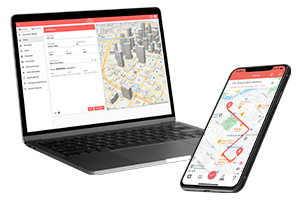December 18, 2023
Welcome to our comprehensive guide on tax saving strategies!
In today’s world, where financial savviness is more important than ever, understanding how to navigate taxes can significantly impact your economic well-being. Whether you’re a small business owner, a working professional, or someone simply trying to manage personal finances more effectively, this guide is tailored to provide valuable insights into the realm of taxes.
In this guide, you’ll find dedicated sections on various aspects of tax savings, such as expert tax advice, the fundamentals of tax optimization, specific tips for small businesses, and the often-overlooked potential of mileage deductions. Each section is crafted to be engaging, informative, and most importantly, practical, ensuring that you can apply this knowledge to your real-life financial situations.

Let’s get started and explore how to save on taxes!
Introduction to Tax Saving Strategies
Are you tired of seeing a significant chunk of your hard-earned money getting swallowed by taxes each year? Fear not! Understanding tax saving strategies can be your golden ticket to a more prosperous financial future. Whether you’re a seasoned taxpayer or new to the game, we’ve got you covered with insights and tips that can make a real difference in your pocketbook.
The Why and How of Tax Savings
Why Bother with Tax Saving?
- Keep More of Your Money: Simply put, effective tax strategies can help you retain more of your income.
- Invest in Your Future: By saving on taxes, you’re freeing up funds for investments, retirement, or even that dream vacation.
- Peace of Mind: Understanding taxes can reduce stress and anxiety around tax season.
How Can You Start Saving on Taxes?
- Educate Yourself: Stay informed about tax laws and updates.
- Seek Professional Advice: Consult with a tax advisor for personalized strategies.
- Plan Ahead: Don’t wait for tax season to start thinking about your taxes.
FAQs on Tax Saving Strategies
Q: I’m new to taxes. Where should I start? A: Begin with understanding the basics of your tax obligations. Familiarize yourself with tax brackets, deductions, and credits. Knowledge is power!
Q: Are tax saving strategies only for the wealthy? A: Absolutely not! Everyone, regardless of income level, can benefit from tax saving strategies. There are numerous deductions and credits available that can cater to different financial situations.
Q: How can I stay updated on tax laws? A: Follow reliable financial news sources, subscribe to tax-related newsletters, and consider annual consultations with a tax professional.
Q: Can tax saving strategies backfire? A: If not properly implemented, yes. It’s crucial to ensure that your strategies are legal and in line with IRS guidelines. This is where professional advice can be invaluable.
Kickstarting Your Tax Saving Journey
Ready to dive in?
- Review Your Previous Tax Returns: Look for missed opportunities and areas to improve.
- Record Keeping: Maintain accurate and detailed records of your expenses, especially those you plan to deduct.
- Stay Proactive: Don’t delay. The best time to start planning for tax savings is now!
Expert Tax Advice: Essential Guidelines
Taxation can sometimes feel like a complex puzzle, but with the right advice and strategies, you can turn it into an opportunity to maximize your financial well-being. Whether you’re running a business, climbing the career ladder, or simply managing personal finances, expert tax advice can be a game-changer. Let’s dive into some essential guidelines and tips to help you understand the role of tax advice in your financial journey.
The Importance of Seeking Expert Tax Advice
Why Invest in Professional Tax Guidance?
- Avoid Costly Mistakes: Tax professionals can help you avoid errors that could lead to penalties or audits.
- Maximize Deductions and Credits: Experts know the ins and outs of tax laws and can identify opportunities you might miss.
- Stay Informed and Compliant: Tax laws change regularly, and a professional can help you stay up-to-date and compliant.
Finding the Right Tax Advisor
- Check Credentials: Ensure your advisor is qualified, with certifications like CPA (Certified Public Accountant) or EA (Enrolled Agent).
- Look for Relevant Experience: Different tax professionals specialize in various areas. Find one that matches your specific needs.
- Seek Recommendations: Ask friends, family, or colleagues for referrals to trusted advisors.
FAQs on Expert Tax Advice
Q: When should I consider hiring a tax advisor? A: Consider seeking professional advice if you have complex tax situations, such as owning a business, having multiple income sources, or dealing with inheritance taxes.
Q: Can online tax software replace a professional? A: While software can be effective for straightforward tax situations, it may not capture the nuances of more complex scenarios where professional advice would be beneficial.
Q: Is tax advice only about filing returns? A: No, it’s much more! Tax advice encompasses planning, compliance, strategy development, and staying informed about tax law changes.
Q: How often should I consult with my tax advisor? A: Ideally, meet at least once a year to review your financial situation, but more frequent consultations may be beneficial in rapidly changing circumstances.
Embracing Expert Tax Advice in Your Financial Plan
Taking the Next Steps:
- Assess Your Needs: Identify your specific tax situations where professional advice could be beneficial.
- Set Clear Goals: Understand what you want to achieve with tax planning, such as reducing liability or planning for future investments.
- Build a Relationship: Establish a rapport with your tax advisor. The more they understand your financial goals, the more tailored their advice will be.

The Fundamentals of Tax Optimization
Tax optimization is like a financial chess game, where each move can significantly impact your overall financial health. It’s about strategically aligning your financial decisions to minimize tax liabilities and maximize wealth. Whether you’re an individual taxpayer, a small business owner, or someone managing investments, understanding the art of tax optimization can be a crucial asset in your financial toolkit.
Understanding Tax Optimization
Why Tax Optimization Matters
- Reduce Your Tax Bill: Proper tax planning can help lower the amount of taxable income you report.
- Enhance Your Savings: By saving on taxes, you can increase your personal or business savings.
- Improve Financial Planning: Tax optimization plays a key role in long-term financial planning and wealth management.
Strategies for Effective Tax Optimization
- Investment Choices: Consider tax-efficient investments like Roth IRAs or municipal bonds.
- Retirement Planning: Utilize retirement accounts like 401(k)s and IRAs to defer taxes.
- Timing of Income and Expenses: Strategically timing when you receive income or make significant purchases can impact your tax liability.
FAQs on Tax Optimization
Q: Is tax optimization legal? A: Absolutely! Tax optimization is about using legal strategies to minimize your tax liability. It’s not about evading taxes but rather about smart planning within the legal framework.
Q: How can I start with tax optimization? A: Begin by understanding your current tax situation. Review your income sources, investments, and potential deductions. It’s often beneficial to consult with a tax professional.
Q: Can everyone benefit from tax optimization? A: Yes, individuals and businesses at all income levels can find ways to optimize their taxes. The key is to tailor strategies to your specific financial situation.
Q: Does tax optimization mean I should avoid paying taxes? A: Not at all. It’s about paying what you owe but not more than that. The aim is to make sure you’re taking advantage of all legal avenues to reduce your tax liability.
Mastering the Art of Tax Optimization
Ready to Take Control?
- Stay Informed: Tax laws and regulations change frequently. Keeping up-to-date is crucial for effective tax optimization.
- Document Everything: Proper documentation is vital for claiming deductions and credits.
- Think Long-Term: Tax optimization is most effective as a part of a long-term financial strategy.
Tax Tips for Small Businesses
As a small business owner, managing taxes can seem daunting, but it’s also an area ripe with opportunities for savings. Smart tax strategies are not just about compliance; they’re about enhancing your business’s financial health and sustainability. Whether you’re a seasoned entrepreneur or just starting out, these tax tips are designed to help you navigate the complexities of business taxes and uncover potential savings.
Essential Tax-Saving Tips for Small Businesses
Why Focus on Tax Saving for Your Business?
- Boost Cash Flow: Effective tax strategies can free up cash, improving your business’s liquidity.
- Invest in Growth: Savings on taxes can be reinvested back into your business, fueling growth and innovation.
- Ensure Compliance: Staying on top of tax obligations reduces the risk of penalties and audits.
Top Small Business Tax Hacks
- Maximize Deductions: Keep track of all business-related expenses, such as office supplies, travel, and client entertainment.
- Consider the Home Office Deduction: If you work from home, you may be eligible for a home office deduction.
- Employ Family Members: Hiring family members can provide tax savings, especially if they’re in lower tax brackets.
- Leverage Retirement Plans: Setting up a retirement plan for yourself and your employees can lead to significant tax advantages.
- Stay Updated on Tax Credits: Tax credits like the Small Business Health Care Tax Credit can be very beneficial.
FAQs on Small Business Tax Strategies
Q: What’s the difference between a tax deduction and a tax credit? A: A deduction reduces your taxable income, while a credit directly reduces your tax bill dollar for dollar.
Q: How often should I review my tax strategy? A: Ideally, review your tax strategy annually. However, significant changes in your business or tax laws may necessitate more frequent reviews.
Q: Can I deduct the expenses of starting my business? A: Yes, startup costs can be deductible, but there are specific rules about how and when these costs can be deducted.
Q: Is it beneficial to use tax software for my small business? A: Tax software can be a great tool for many small businesses, but consulting with a tax professional can provide more personalized advice and strategies.
Implementing Effective Tax Strategies
Steps to Take for Tax Efficiency
- Keep Impeccable Records: Good record-keeping is essential for claiming deductions and credits.
- Understand Your Entity Type: Your business structure (like LLC, S-Corp, or sole proprietorship) significantly impacts your tax obligations.
- Plan for Tax Payments: Set aside funds regularly to avoid surprises during tax season.
- Seek Professional Advice: A tax professional who understands small business nuances can be an invaluable resource.

Maximizing Mileage Deduction
Fuel Your Tax Savings with Smart Mileage Tracking
For many individuals and businesses, mileage deduction is a hidden gem in the world of tax savings. Whether you’re self-employed, a small business owner, working in sales, or managing a fleet of vehicles, understanding how to track and claim mileage can lead to substantial tax deductions. Let’s explore how you can turn every mile into potential savings.
The Road to Effective Mileage Deduction
Why Mileage Deduction Matters
- Reduce Taxable Income: Every mile you deduct reduces your taxable income, leading to potential tax savings.
- Simple Yet Effective: Mileage deduction is one of the simpler ways to save on taxes, especially for those who travel frequently for work.
- Versatility: It’s applicable for a wide range of professions and purposes, including business trips, medical visits, and charitable work.
Strategies for Maximizing Mileage Deduction
- Track Every Trip: Keep a detailed log of every business-related trip, including dates, miles, and purpose.
- Choose the Right Method: Decide between the standard mileage rate and actual expenses method for your vehicle.
- Understand What Counts: Know what types of travel are deductible and which aren’t (like commuting to a regular workplace).
An advanced mileage tracker app like MileageWise can take care of your mileage tracking needs.
FAQs on Mileage Deduction
Q: How do I track my mileage for tax purposes? A: You can use a traditional logbook, a spreadsheet, or specialized mileage tracking apps to record every business-related trip accurately.
Q: What is the standard mileage rate? A: The standard mileage rate is set by the IRS and allows you to deduct a set amount per mile driven for business purposes. This rate changes annually. Here’s the 2023 rate and this is for 2024.
Q: Can I switch between the standard mileage rate and actual expenses each year? A: Generally, once you choose to use the actual expense method for a vehicle, you must continue with it for the life of that vehicle.
Q: Are trips between multiple work locations deductible? A: Yes, travel between different work locations within the same day is typically deductible.
Putting the Pedal to the Metal: Implementing Your Mileage Deduction Strategy
Steps to Maximize Your Mileage Deduction
- Start Now: The sooner you start tracking, the better. You can’t deduct miles you haven’t recorded. However, MileageWise can help you recover lost mileage by letting you import your Google Timeline records into the software where it gets converted into proper IRS-Proof mileage logs.
- Be Consistent: Ensure that your tracking method is consistent and reliable. Inconsistent records can lead to challenges if audited.
- Review IRS Guidelines: Familiarize yourself with the latest IRS rules and rates for mileage deduction.
- Consider Professional Advice: A tax professional can provide personalized advice, especially if your situation is complex. Also, our experts at MileageWise are happy to jump in, if you need your yearly mileage log created.
Concluding Thoughts: Your Journey to Tax Mastery
As we wrap up this comprehensive guide on tax saving strategies, remember that the journey to tax efficiency is ongoing and dynamic. What we’ve explored are not just tips and tricks but fundamental approaches to understanding and leveraging tax laws to your advantage. Whether you’re fine-tuning your personal finances or optimizing your business’s tax strategy, the knowledge and insights gained here can be transformative.
We encourage you to revisit these strategies, consult with professionals when needed, and continue educating yourself on the ever-evolving tax laws. Your financial well-being is a journey, not a destination, and mastering your taxes is a vital part of that journey. Here’s to your success and financial empowerment, as you navigate the waters of taxation with confidence and savvy!
Download MileageWise’s automatic mileage tracker app from Google Play or the App Store & try it for free for 14 days. No credit card required!




